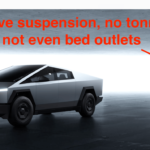The British government is taking steps to support the car industry amidst challenges such as the revamped Zero Emission Vehicle (ZEV) mandate and potential US tariffs. Following the ZEV mandate, a “modern industrial strategy” will be unveiled in the summer to help British businesses tap into industries of the future. Negotiations for a new trade deal with the US are ongoing, with plans for retaliatory measures if necessary.
The Society of Motor Manufacturers and Traders (SMMT) has welcomed the government’s efforts, acknowledging the pressure on manufacturers. SMMT CEO Mike Hawes emphasized the need for bold fiscal incentives to drive consumer demand for electric vehicles (EVs). The industry is facing challenges like geopolitical uncertainty and a lack of consumer demand, making the ZEV targets particularly difficult to achieve.
The government has announced that hybrids will be allowed to remain on sale until 2035 to facilitate a smoother transition and give the industry more time to adapt. Recent data shows a significant increase in registrations of plug-in hybrids and other types of hybrids in the UK, with electrified cars now holding a 25% market share.
As the automotive industry navigates these changes, it is crucial for UK-US negotiations to progress swiftly, and for industrial and trade strategies to prioritize automotive. The focus should be on supporting manufacturing, especially the supply chain, to drive economic growth, create jobs, and attract investment.
In conclusion, the automotive industry is facing challenges and uncertainties, but with the right support and strategies in place, it can adapt and thrive in the evolving landscape of the future.







